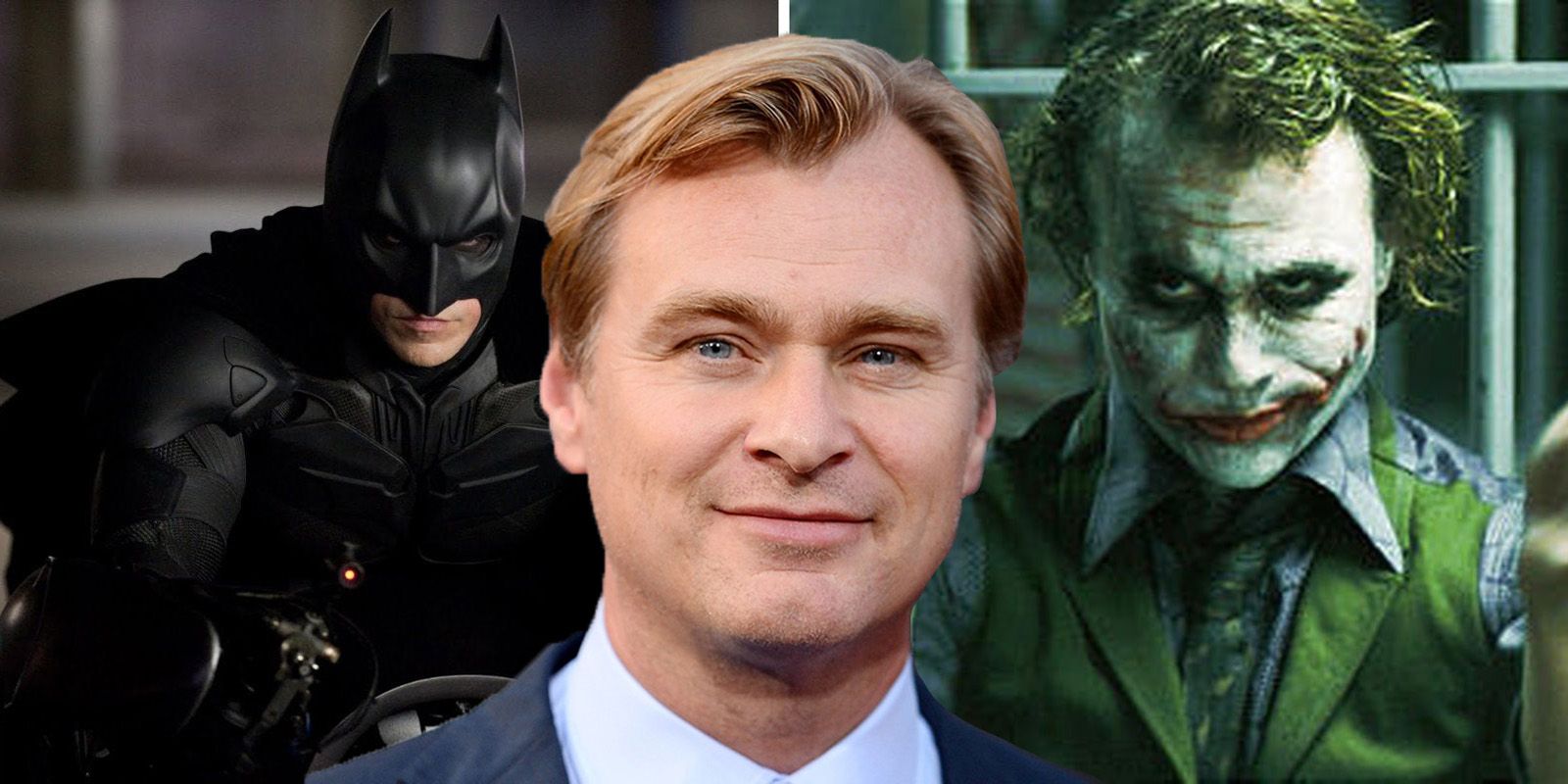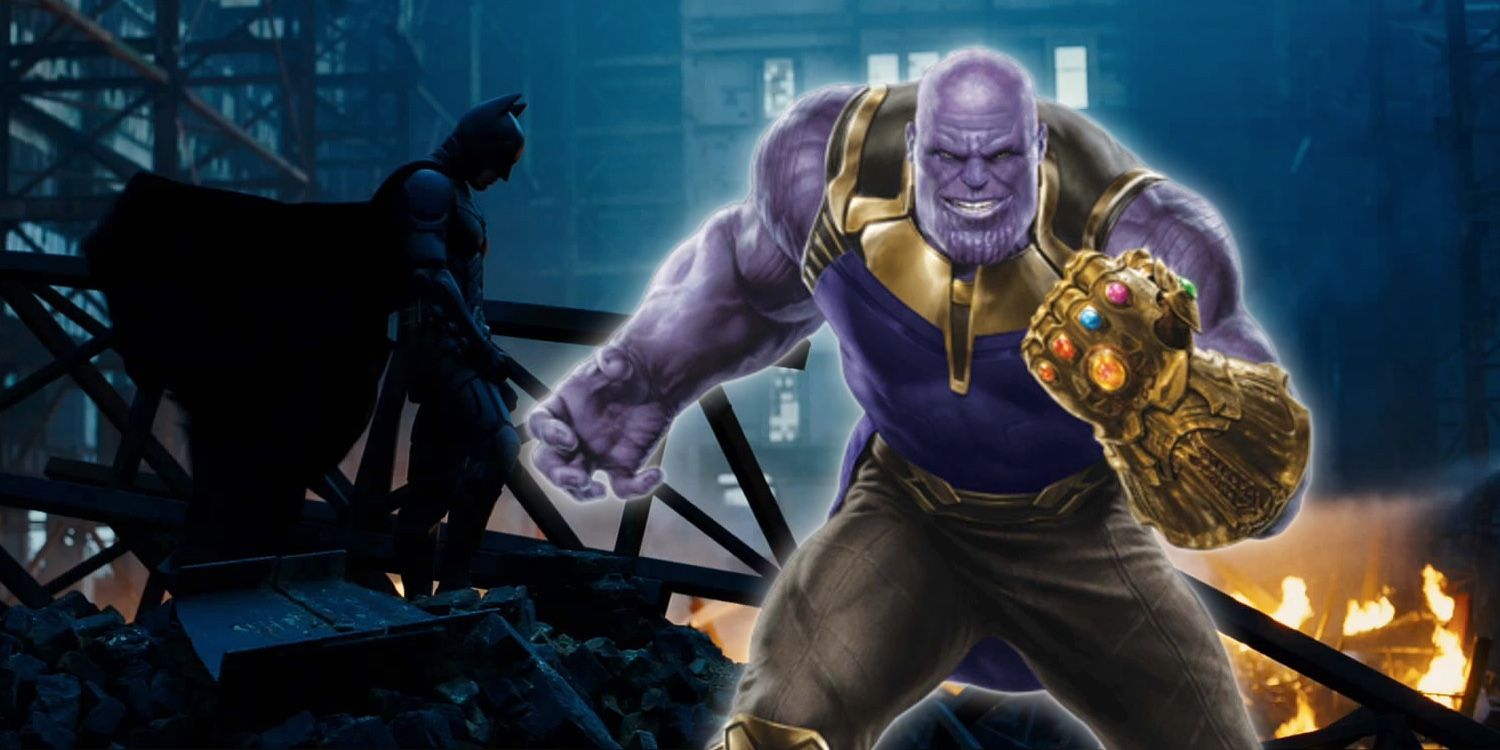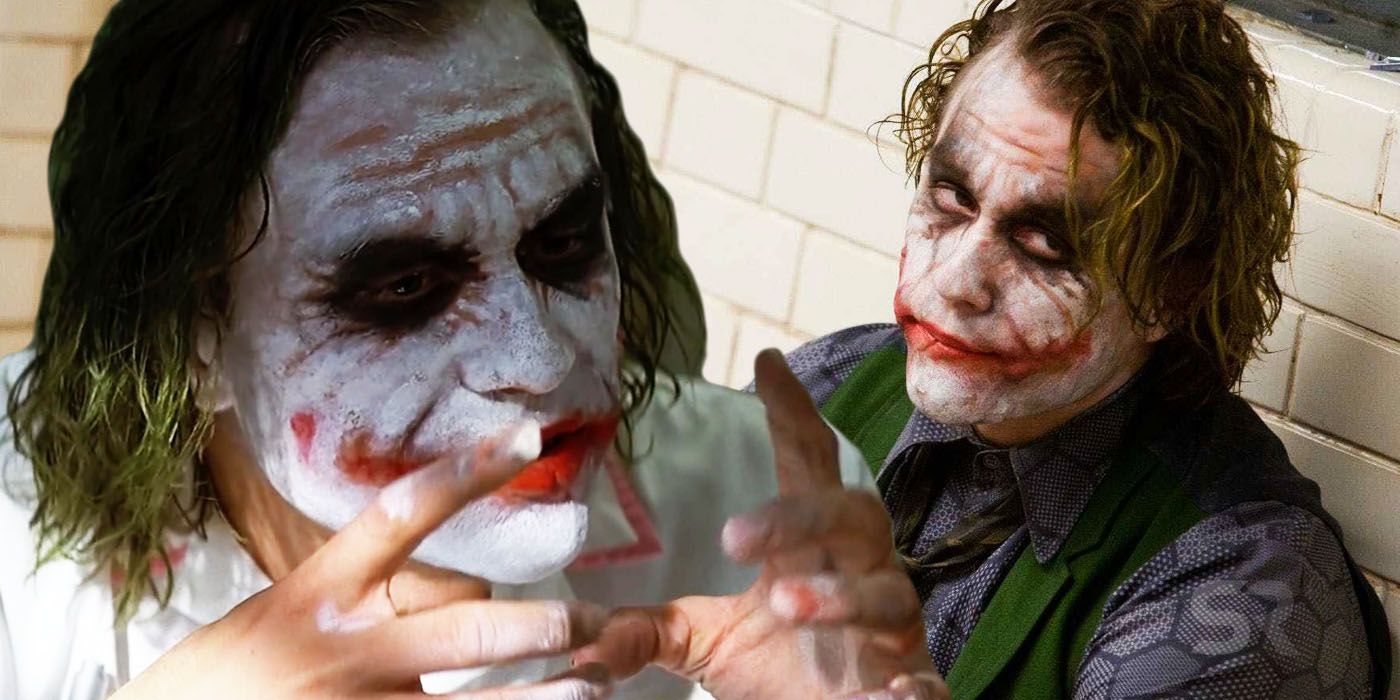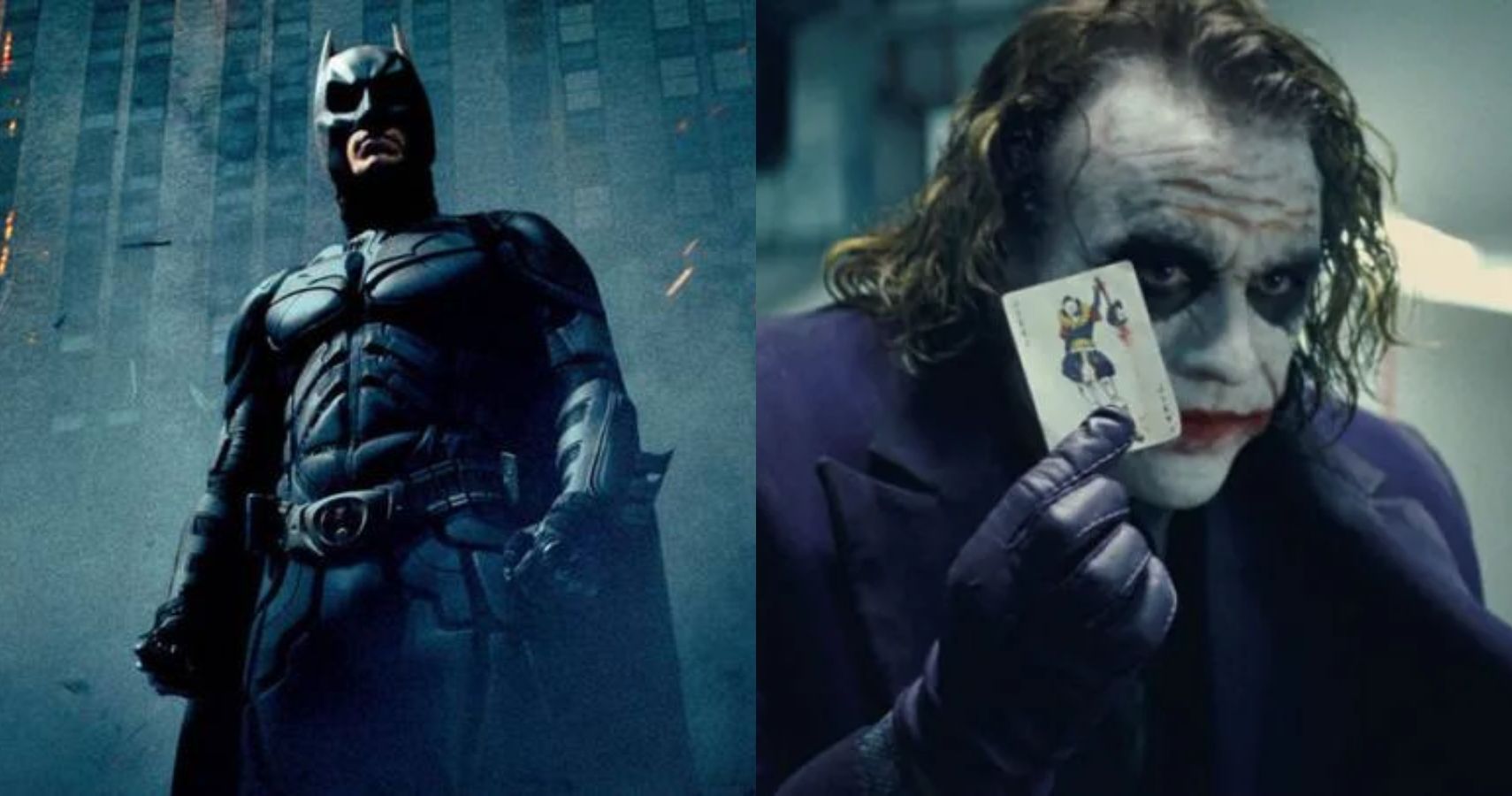The Dark Knight may still be the most important pillar supporting the superhero genre. The highly anticipated sequel to Batman Begins, which established the fundamentals for a grittier take on Batman, perfectly expanded the character development and narrative complexity in a way that no comic book movie had done before and few do to this day. This level of quality garnered overwhelming respect from critics and audiences alike and proved its worth at the box office, becoming the first comic-book movie to gross over $1 billion worldwide.
Previously, the Batman films had somewhat dwindled reverence for the DC character. After the failure of Batman & Robin, Marvel’s X-Men debuted and followed the footsteps of Richard Donner’s Superman, giving the source material a gravitas and realism that hadn’t quite been seen before. This is where director Christopher Nolan found his stride for The Dark Knight. He not only approached Batman with respect and faithfulness, but laced the universe with meaningful themes and ideas.
Comic book films since, including further iterations of Batman, have definitely taken notes but are rarely ever awarded with the same type of success, narratively or financially. Paired with Iron Man, The Dark Knight truly marked the birth of the contemporary superhero movie, as every superhero title since has tried to emulate either Iron Man or The Dark Knight. From writing to exhibition, The Dark Knight's legacy has endured in both Hollywood and the public's minds for vital reasons.
The Dark Knight Paved The Way For Modern Superhero Movies
Several elements that we perhaps take for granted now within the comic book genre were confidently laid out by Warner Bros in 2008. From the film's screenplay to its marketing and exhibition, The Dark Knight rewrote the book for success, and arguably helped extend the shelf life of comic book movies in Hollywood.
First, it opened up new tonal possibilities. Thanks to its level of detail and plot precision, the movie operated similarly to a crime drama rather than an absurd villain-of-the-week comic book yarn - something that superhero movies were particularly attacked for during this time, best encapsulated by Sam Raimi’s Spider-Man trilogy. Those movies had advantages of course, but The Dark Knight provided a much-needed break from a corny and stale format by incorporating different genre elements, effectively turning a “superhero” movie into a serious movie. Today, this influence of earnestness can be observed in the political thriller vibes of Captain America: The Winter Soldier, or in the tragedy elements of Logan.
Additionally, Christopher Nolan’s battle to shoot in IMAX resulted in a unique and exciting option for moviegoers and certainly aided The Dark Knight’s appeal on its initial release. Its sell-out screenings in IMAX theaters inevitably lead to the format becoming a new staple for blockbuster pictures; it helped birth a new and fruitful era for exhibition.
Aside from its $1 billion gross, the movie's most notable triumph though came during awards season. The Dark Knight’s Best Actor win for Heath Ledger’s Joker, plus an additional seven nominations, brought comic book films to an unprecedented (and long overdue) level of Academy recognition and an inevitable wave of respect in the process. The usual snobbery towards superheroes in Hollywood began to die off, and it was the victory of The Dark Knight that helped instigate its demise. Academy Award-winners Black Panther, Joker, and future comic book movies will forever be indebted to the caped crusader.
Comic Book Movies Are Still Compared To The Dark Knight
For better or worse, every action movie made since 2008 seems to draw similarities that range from loving visual homages to straight-up Batman wannabes. In The Dark Knight's aftermath, villains in The Avengers, Skyfall and Star Trek Into Darkness all recalled the Joker’s trick of deliberately getting caught and being locked in a prison cell, only to escape when the pre-planned chaos ensued. And beyond screenplay mirroring, composer Hans Zimmer's bombastic, percussion-heavy themes have become the go-to sound for big-budget adventure films, with similar styles heard in Mad Max: Fury Road and Blade Runner 2049 (also composed by Zimmer).
Most notably though, because Nolan respectfully fashioned a gritty realism from the comic’s darkly fantastical universe, a new misguided trend in Hollywood was initiated. The 2010s conveniently began the age of the “dark, gritty reboot,” reintroducing properties that "Nolan-ized" formerly whimsy or campy IPs, not limited to G.I Joe: The Rise of Cobra, Robin Hood, RoboCop and Power Rangers, which all deliberately missed the marks hit by their source materials.
Unsurprisingly, ‘Nolan-ization’ mainly came in the form of DC's own output. In an attempt to over-capitalize on TDK’s critical legitimacy, DC's desire to create something “dark,” “edgy,” and “real” took top priority and clouded the waters of insightful and emotional storytelling. Director Zack Snyder and the now defunct DCEU took harsh criticisms for this approach, as critics lamented that character, theme, messages, and dimension were lost in murky color palettes and lofty, pretentious dialogue.
The Dark Knight was indeed praised for a similarly downbeat vision, but also for its levity, which deprived the film a chance of feeling gimmicky or dark for dark’s sake. After the billion-dollar success of Todd Phillips’s Joker, Warner Bros. is seemingly segueing back to the sincere and self-contained films that warrant favourable comparisons to Nolan and can help pay off The Dark Knight’s influence in a meaningful way.
The Dark Knight Is A Timeless Story That Stands Alone
In the coming decade when the MCU will likely still reign supreme (22 films and counting), it might be easy to drown out a film series that saw only three entries. This would be a woeful oversight however, as The Dark Knight trilogy offers something that few modern franchises are willing to replicate. Unlike the MCU films, all three work in their own right as individual narratives, not necessitating the assistance of a dozen other movies.
Lacking the first and last entry, The Dark Knight is a still a clean stand-alone story. Returning villain Scarecrow works as a mild obstacle for Batman to quickly tackle, and the ending sequence, accompanied by Gordon's legendary climactic narration, supplies a fitting and satisfying end to the Batman legend. The story's continuation in The Dark Knight Rises was of course a welcome addition, but a sense of mystery and crushing lack of resolution is perfectly emblematic of Batman's tragic and mysterioso image.
With the help of the perfect casting, faithful renditions of Batman, the Joker, Two-Face, and Gordon are created, but the script elaborates on this with a chess game complexity, arguably creating the most juxtaposed dynamic in any superhero film. Intertwined with morality and chaos messages, the process towards Batman and Gordon’s failed mission to restore Gotham's hope offers an incredibly thoughtful and painful thematic insight. Even a full decade later, no superhero film comes close to replicating The Dark Knight.




